In a world where the pursuit of success, happiness, and validation often seems paramount, the concept of “not giving a duck” might initially sound flippant or even irresponsible. However, beneath its seemingly carefree facade lies a profound philosophy that emphasizes the importance of authenticity, self-awareness, and prioritization of values.
Originating from Mark Manson’s bestselling book, “The Subtle Art of Not Giving a F*ck,” this unconventional approach challenges conventional wisdom by urging individuals to reconsider where they invest their time, energy, and emotions. Rather than striving for an unattainable ideal of constant positivity or seeking approval from others, it encourages embracing one’s flaws, limitations, and inevitable struggles.
At its core, the art of not giving a duck is about recognizing that life is inherently messy and unpredictable. No matter how diligently we plan or strive for perfection, setbacks and disappointments are inevitable. Instead of resisting or denying these realities, this philosophy advocates for embracing them as integral parts of the human experience.
Central to this mindset is the concept of selective indifference. It’s not about apathy or indifference to everything, but rather about consciously choosing where to direct our attention and concern. By identifying our core values and priorities, we can allocate our limited emotional resources more effectively, focusing on what truly matters to us and letting go of trivialities and distractions.
Moreover, the art of not giving a duck emphasizes the liberation that comes from accepting ourselves fully, flaws and all. In a society that often promotes superficiality and comparison, learning to embrace our authentic selves can be a radical act of self-love and empowerment. By letting go of the need for external validation and embracing our imperfections, we free ourselves from the suffocating pressure to conform to unrealistic standards.
Contrary to popular belief, adopting this mindset does not mean abandoning responsibility or ambition. Instead, it’s about approaching life with a sense of groundedness and perspective, recognizing that true fulfillment comes from within rather than from external achievements or accolades. It’s about pursuing goals that align with our values and passions, rather than chasing validation or approval from others.
The art of not giving a duck also encompasses the willingness to confront discomfort and embrace vulnerability. Growth and self-improvement often require stepping outside of our comfort zones and facing the fear of failure or rejection. By reframing these challenges as opportunities for learning and growth, we can cultivate resilience and inner strength.
Conclusion
In a world that often seems obsessed with superficial measures of success and happiness, the art of not giving a duck offers a refreshing alternative. It’s a reminder that true fulfillment and contentment come from living authentically, embracing life’s uncertainties, and prioritizing what truly matters. By letting go of the need for external validation and focusing on our internal compass, we can cultivate a deeper sense of self-worth and genuine happiness. So, dare to embrace your inner duck and live life on your own terms.

